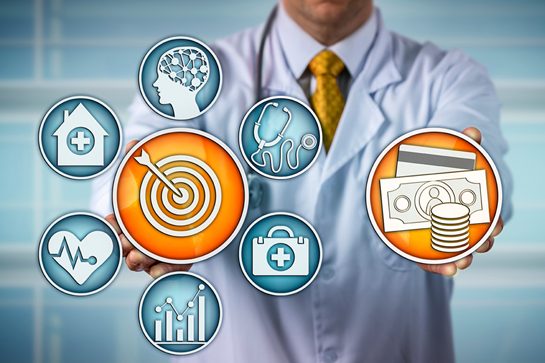In the continuing effort to improve healthcare, the CMS Data Element Library provides a uniform standard of efficiency for collecting, organizing, and sharing health information across multiple environments. These standards support improved care coordination, health outcomes, and the easing of the burden on providers by facilitating the appropriate reuse of health data. As healthcare technology continues to advance, the adoption of the DEL model promises greater efficiencies across the industry.
What is it?
The DEL is a standard for CMS assessment instrument data elements and the associated health information IT requirements. The DEL supports three key goals:
- Provide a centralized resource for CMS assessment data elements
- Promote sharing of electronic CMS data and establish health information technology standards
- Influence and support the use of electronic health records and other health IT interoperability efforts
DEL and Care Coordination
One key benefit of using the DEL model is the increased ability to share and act on information across multiple providers as well as between patients and health professionals. Providers that partner in adopting the DEL standards can reuse and share consistent data across multiple platforms which allows for timely, secure, and reliable data-based care decisions. In addition, several initiatives, such as MyHealthEData and Patients over Paperwork, work in conjunction with the DEL to encourage providing patients with access to their information. Patients who engage with their own information are more active in the decision-making process and better enabled to partner with providers in their own healthcare.
The DEL supports the goal of whole person care by reinforcing the benefits of collaboration across the healthcare industry. Providers stand to gain by becoming part of a larger information network—meaning greater access to patients and cost savings—while patients stand to gain by the increased access to various providers with the greater likelihood of meeting individual patient needs. In addition, patients may benefit from improved value-based, whole person care as generalists, specialists, and other support groups share and coordinate on health information.
DEL and EHR Systems
The interoperable exchange of health information reduces errors—and therefore the costs—of care. EHR systems that use DEL data mapping benefit from the reduction of errors and the consistency of information across platforms. Data reuse helps promote CMS’s focus on Patients over Paperwork and encourages the use of EHRs in place of traditional paper-based systems.
Additionally, DEL-mapped EHR systems may increase the likelihood that social determinants of health are identified, measured, and treated effectively by providing consistent data sets that can be better reviewed across time by any associated provider. Patient trends and social factors that may go unnoticed in non-DEL-mapped data sets are more likely to be seen and addressed because the data is consistently gathered, organized, and then shared across all providers.
In implementing DEL standards, providers should consider the impact to previously gathered information. That information would either exist in legacy systems, thus requiring the maintenance of multiple systems, or it would need to be converted. Over time, those risks are reduced as previously gathered information ages and is no longer relevant.
Conclusion
The DEL model is a key opportunity for driving integrated care coordination through uniform health IT standards for collecting and sharing health and social data. It provides for increased data sharing, better collaboration between providers and patients, and reduces costs for everyone involved. As the healthcare system continues to transition to value-based care, the DEL model will connect providers and enable them to deliver truly whole person care.



